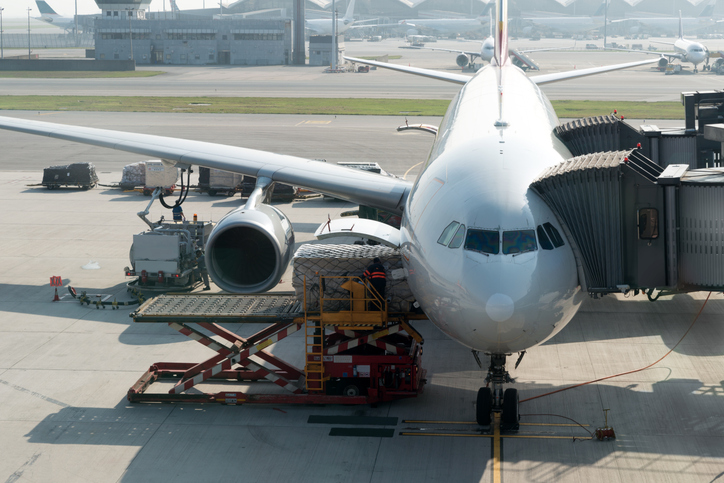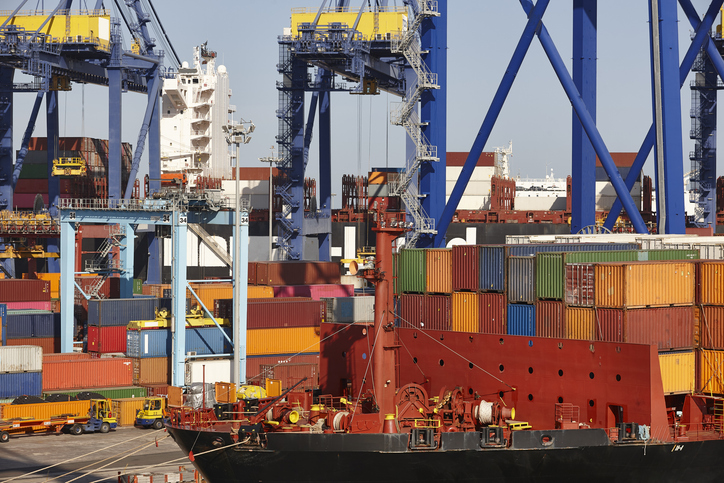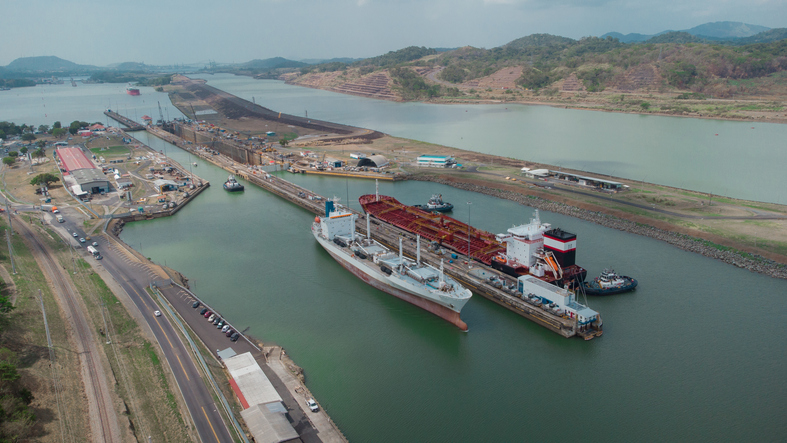
The Weekly Roar
In this week’s Roar: Shifting global trade routes, the trucking industry’s downturn, surging container volumes in LA, connecting Asian bunker markets with tariffs and the EU, and a new plan for the Panama Canal.
A report was released showing recent data highlighting some significant shifts in global trade routes—mostly due to disruptions in the Red Sea, which led to a 33% decrease in Asia-Europe maritime capacity from 2023 to 2024. However, Asia-Europe is still the busiest, followed by Asia-North America. But Asia-West Africa trade fell from 6th place to 11th as vessels reroute around Africa. In airfreight news, the Chicago O’Hare-Anchorage corridor leads with a weekly capacity of 25,317 tons, highlighting Anchorage’s role as a transpacific cargo hub.
 During 2024, the trucking industry faced a prolonged market downturn, marking the longest and deepest freight recession since the financial crisis in 2007. Now in its 34th month, the downturn contrasts with typical freight recessions that last about 10 months. The American Trucking Association reported a gradual increase in tonnage since hitting a low in January 2024, seeing a 3% rise by October. Carrier failures averaged 400 per month over the past four months, which is a significant improvement from the 1,700 monthly failures that happened throughout 2023. Industry experts are suggesting that factors such as capacity trends, economic conditions, and trade policies will continue to influence the duration of the downturn.
During 2024, the trucking industry faced a prolonged market downturn, marking the longest and deepest freight recession since the financial crisis in 2007. Now in its 34th month, the downturn contrasts with typical freight recessions that last about 10 months. The American Trucking Association reported a gradual increase in tonnage since hitting a low in January 2024, seeing a 3% rise by October. Carrier failures averaged 400 per month over the past four months, which is a significant improvement from the 1,700 monthly failures that happened throughout 2023. Industry experts are suggesting that factors such as capacity trends, economic conditions, and trade policies will continue to influence the duration of the downturn.
The Port of Los Angeles saw a surge in container volumes in November 2024, pushing it to double digit growth. The increase is attributed to sustained consumer demand and importers who picked up the pace of shipments in anticipation of disruptions. The port’s executive director highlighted that this growth positions the port to handle $1 trillion in imports. The port has plans in place to implement a truck reservation system to optimize throughput and manage the increase in activity.
Asia’s bunker markets are expected to remain stable in early 2025 thanks to ample supply. However, potential policy shifts under the new administration could disrupt this balance. Easing sanctions on Russian oil may reduce exports to Asia, tightening supply, while increased sanctions on Iran could limit its oil shipments to China. Additionally, Kuwait’s may prioritize Middle Eastern markets, potentially reducing exports. Another factor is new European maritime commission regulations possibly altering fuel demand, tightening supplies in Europe while increasing the availability of fuel in Asia.
Effective January 1, 2025, the Panama Canal Authority (APC) plans to implement a new transit reservation system, introducing changes in care of structures and fees to enhance service levels and optimize operations. In response to this some major carriers have announced a surcharge of $40 per TEU for all cargo types on services connecting Asia to the US East and Gulf coasts. The purpose is to offset the increased costs associated with the modifications. Additionally, the APC plans to impose a penalty that’s equivalent to 250% of the reservation fee for any vessels that arrive more than seven days past their booked date.
For the rest of the week’s top shipping news, check out the article highlights below.









